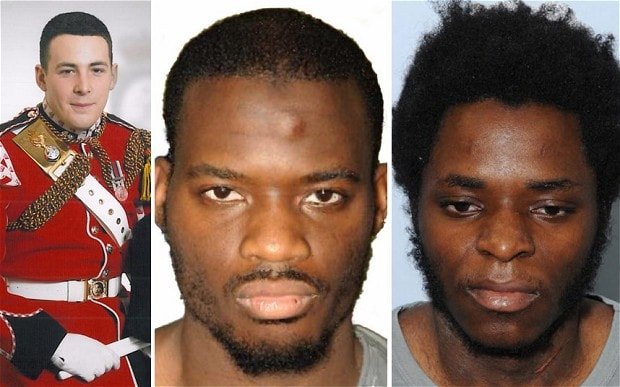Britain’s longstanding tradition of offering refuge to those fleeing conflict and persecution is a source of national pride. However, the consequences of unvetted mass immigration have been downplayed for too long. As we grapple with the complex realities of multiculturalism and integration, one stark fact stands out: the rising tide of jihadism among second and third-generation asylum seekers is a threat that can no longer be ignored.
For decades, successive governments have assured the public that our asylum policies are humanitarian and necessary. But beneath this veneer of compassion lies a troubling reality. The failure to adequately vet those entering the country, combined with a lack of effective integration, has created fertile ground for radicalisation. While many asylum seekers integrate and contribute to society, a growing number have turned their backs on British values, embracing instead the dangerous ideologies that threaten our way of life.
The 2021 Census painted a grim picture of the socio-economic impact of mass immigration. A significant proportion of immigrant communities, particularly those from conflict zones like Somalia, Afghanistan, and Syria, remain economically inactive. This has placed a substantial strain on public resources, from housing to welfare benefits, all while the British taxpayer foots the bill.
Yet, it’s not just the economic burden that should concern us. The social fabric of our nation is being strained by communities that, despite being born and raised in Britain, feel no allegiance to it. Instead, they cling to an identity that is neither British nor rooted in their ancestral cultures, but rather forged in the crucible of radicalism and resentment. This is not an issue of “alienation” or “identity crisis”—these are excuses used to deflect from the uncomfortable truth that many within these communities have chosen to reject the society that has given them so much.
The numbers are alarming. In 2020, it was reported that 90% of the 43,000 individuals on MI5’s watchlist were Islamist terror suspects. Fast forward to 2023, in the wake of the attack on Israel, and that figure is believed to have risen to nearly 100,000. These are not isolated cases of radicalisation but a systemic failure that has been allowed to grow unchecked.
We are not just talking about a handful of disillusioned individuals. We are facing a movement—an insurgency within our borders—that seeks to undermine the very foundations of British society. From the 7/7 bombers to “Jihadi John,” the pattern is clear: Britain is breeding homegrown terrorists who are willing to kill and die in the name of extremist ideologies. And these individuals are not recent arrivals but the children and grandchildren of those who were given refuge here.
The rise of the internet and social media has only exacerbated this threat. Jihadist groups have become adept at using these platforms to spread their poison, recruiting and radicalising young people across the West. The British government’s attempts to combat online radicalisation have been tepid at best, leaving many young Muslims vulnerable to extremist propaganda.
What’s worse, the very tools that could be used to counter this narrative—education, community engagement, and law enforcement—have been hampered by political correctness and fear of offending. The Prevent programme, once touted as a key part of the counter-terrorism strategy, has become a shadow of its intended purpose. Critics argue that it targets Muslim communities unfairly, but the truth is that it has failed to target the real threat effectively.
In light of these escalating threats, one must ask: what is our leadership doing to address the dangers posed by radicalised second and third-generation immigrants? Prime Minister Keir Starmer’s response has been to focus on broader societal unrest, recently announcing the formation of a new violent disorder unit following the riots that erupted in Southport, Southend, Manchester and London after a terrorist attack. While this move addresses the symptoms of the problem, it does little to confront the root cause—namely, the radicalisation that continues to grow unchecked within certain communities.
The establishment of this unit may help contain the immediate fallout from such incidents, but it does nothing to prevent the spread of the extremist ideologies that fuel these outbreaks of violence. Starmer’s actions suggest a government more concerned with managing public order than tackling the deeper, more insidious threat of jihadism. This is a classic case of treating the symptoms while ignoring the disease.
It is time to face facts: Britain’s current approach to immigration and integration is not working. The rise of jihadism among second and third-generation immigrants is proof of this. We need a new strategy, one that prioritises national security and the preservation of British values. This means tightening immigration to only those whose skills we need. Controls ensuring that those who come here are fully vetted. It means holding communities accountable for their integration and not allowing them to become isolated enclaves where extremism can fester unchecked.
Moreover, we must overhaul our counter-radicalisation efforts. The Prevent programme must be strengthened and refocused to deal with the realities of modern extremism. We need to be honest about where the threats are coming from and be prepared to act decisively to neutralise them.
Britain cannot afford to be complacent. The threat of jihadism among second and third-generation asylum seekers is real, and it is growing. Prime Minister Starmer’s decision to create a violent disorder unit is a step in the right direction, but it falls short of addressing the core issue. The government must take a stand to protect our borders and our way of life. This is not about turning our backs on those in need, but about ensuring that those who come to Britain respect and uphold the values that have made this country great. If we fail to act now, we risk losing not only our security but our identity as a nation.
We Want Our Country Back.
Stan Robinson,
Voice of Wales













